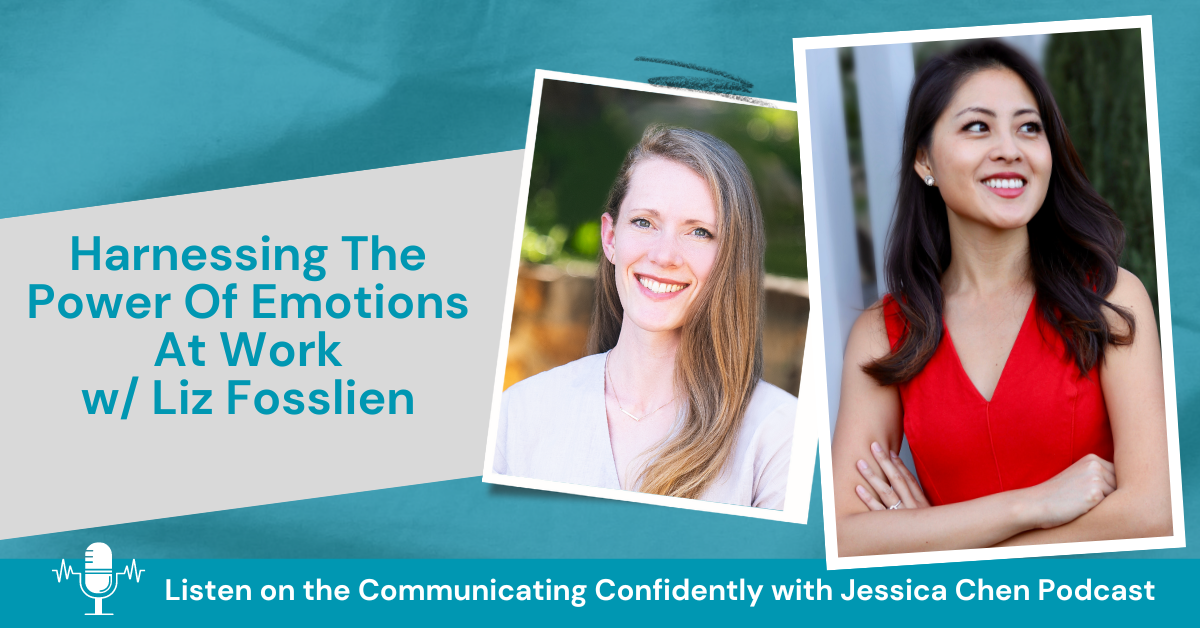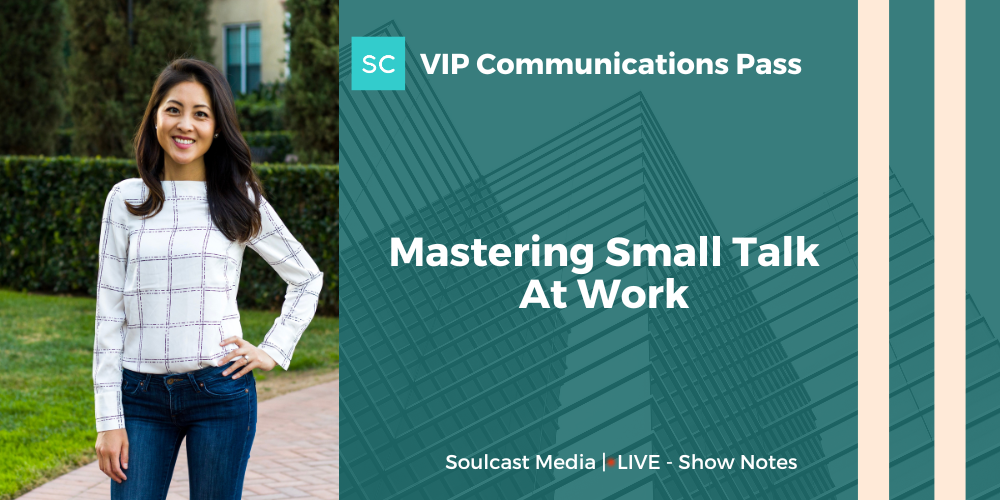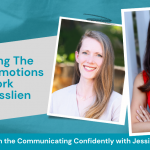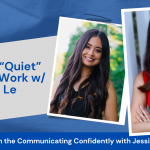Finding Your Authentic Voice
At times, we can all struggle to show up authentically at work. We often feel like we need to shrink our personalities. Or we take on a “serious” or “business” persona. The truth is, being our authentic selves and using our authentic voices will help us find career success.
 Our CEO and Founder, Jessica Chen, recently hosted a Soulcast Media | LIVE event on LinkedIn, where she interviewed Content Manager for LinkedIn Learning, Almeera Jiwa Pratt. They shared tips and personal stories about finding your authentic voice.
Our CEO and Founder, Jessica Chen, recently hosted a Soulcast Media | LIVE event on LinkedIn, where she interviewed Content Manager for LinkedIn Learning, Almeera Jiwa Pratt. They shared tips and personal stories about finding your authentic voice.
1. Authenticity
According to Twitter Business, 90% of millennials say authenticity is essential when deciding which brands they like to support. People crave authenticity from brands, and the people they interact with. So how do we go about finding our authentic voice?
Consider the following:
- Trust + Honesty – During the Soulcast Media | LIVE, Jessica asked Almeera what it means to find our authentic voice. Almeera said trust and honesty. She said we must be truthful and honest with ourselves to be authentic. For example, one way to be truthful with ourselves is to analyze the stories we are telling about ourselves. Are they true? Do the stories align with who we are? If not, we need to remove these mental barriers to be a more authentic version of ourselves.
- Mental Barriers – Mental barriers are one of the most significant blocks people face when finding their authentic voice. For example, if we are new hires, we may tell ourselves we don’t have anything to add during a meeting. However, this mental barrier will prevent us from speaking up and adding what we know, which is extremely valuable. Instead, we need to remove this mental barrier and reframe it. We can say, “We are new hires; however, we have a lot of knowledge about this topic. What we say is valuable to others who have been working here longer.” When we reframe a mental barrier, we can prevent it from keeping us from our authentic selves.
- Actions – Our thoughts and words must equal and meet our actions. For example, if we say we will finish the reports by Friday at 5 pm, we must ensure we do what we said. Otherwise, we will not be seen as authentic because our words don’t match our actions.
Authenticity is being self-aware of how we are at our worst, how we are at our best, and deciding with intention how we will show up in our day-to-day lives.
2. Stop Pretending
During the Soulcast Media | LIVE, Almeera said there were times during her career when she felt the need always to be serious. This made her act a certain way at all times. Unfortunately, she was pretending to be someone she wasn’t, even though her intentions were in the right place, and people couldn’t connect with her. Every situation requires us to be self-aware; however, this doesn’t mean we should pretend to be someone we aren’t. Almeera said the key to ensuring we aren’t pretending is asking ourselves honest questions.
Consider the following:
- What We Should Do – As we move through each situation, we need to ask ourselves what we should do. For example, let’s say we’ve just received an email that upset us. We need to ask ourselves, “What should we do?” Depending on our personalities, our should will differ. We may feel like we should do nothing. Or perhaps we feel like we should respond to defend ourselves. Think about what our mind is telling us to do.

- What We Want To Do – What we want to do is our first impulse. Using the same example as before, getting an upsetting email, may make us want to scream and yell. We may also want to write a scathing response. Generally, what we want to do is how we would react if there were zero consequences to our actions.
- What Is The Best – Once you’ve considered what we should do vs. what we want to do, we can decide what is best. For example, we’ve received an upsetting email. We should be the bigger person and not respond. However, we want to write a scathing response. What would be the best option, without compromising our authentic voice? Maybe we need to craft a response. However, we need to maintain our executive presence because we are in a work environment. We can still be true to ourwelves and respond, without pretending everything is fine.
Authenticity is not just giving in to our impulses. Instead, we should find the balance between what we want and should do and pick the best fit for every situation.
3. Listen
One of the best ways to find our authentic voice is to listen to ourselves and others. During the Soulcast Media | LIVE, Jessica said we often put pressure on ourselves to perform in a certain way. However, when we listen to ourselves, and others, we can get out of our heads and truly connect with others.
Consider the following:
- Body Breath Awareness – Listening to body cues can help us be more authentic. For example, if we feel ourselves start to tense up, we know we aren’t being our authentic selves. We are entering into fight-or-flight territory. To combat this, we need to practice body-breath awareness. Try to take deep breaths, holding for four seconds and then releasing. Find the areas of our bodies with tension and release the tension. In this way, we will be able to get out of the fight-or-flight pattern and be more authentic in our interactions.

- Believe Our Value – During the Soulcast Media | LIVE, Jessica shared a story about her experience as a young journalist. She said she would feel intimidated to speak up around the more experienced anchors. She said, we need to listen to ourselves and remember our value. Because our input is valuable whether we are just starting, or in the middle of our careers. When we believe we have value, our authenticity will shine through.
- Give Space – As leaders, we need to show up authentically and give space for our team to do the same. For example, one way to do this is to be intentional when interacting with our team. We need to ask them about their work, day, and life. Give them space to be who they are. When our team feels supported to be themselves, they can work at their highest level.
Listening will help us find our authentic selves. The more we can release pressure to perform, the more authentic we will be.
Finding our authentic voice will help us connect with others and the world around us. In the end, we don’t have time to act any way other than ourselves.
If you want to see the full LIVE version of Jessica and Almeera’s conversation, check out Jessica’s Youtube Channel.
__
Whenever you’re ready, there are 3 ways we can help you:
- Discover your communications style so you know where to start. Over 4,000 people have found theirs here.
- Attend our monthly communication workshop to build communications confidence (new topics: public speaking, advocating for yourself, building credibility, etc) here.
- Get your brand in front of 43k+ people by sponsoring our newsletter or Soulcast Media | LIVE LinkedIn events [contact: hello@soulcastmedia.com]











